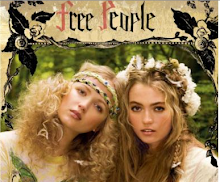Actually, I don't have to guess at their reaction.
And it isn't just the preternatural populations who need to worry. As stated in this article from Reuters:
...[The] marriage ban could open the door to legal discrimination against unpopular groups if the state Supreme Court allows the voter-approved measure to stand, blacks, Latinos, Asians and other minorities said.... [O]pponents of the measure decry what they consider a civil rights violation.
California's highest court agreed on November 19 to hear a challenge, based on whether the state constitution requires support from the legislature -- as well as a majority vote of the people -- to strip rights from any group.
Legal scholars say the measure, which defines marriage as between a [human] man and a [human] woman, breaks new ground by limiting the courts' ability to protect minorities. "They could take away any right from any group," said University of Southern California Law Professor David Cruz.
The ban, California Proposition 8, amended the constitution with 52 percent support -- less than is required to approve some state bond measures.
"The entire purpose behind the constitutional principle of equal protection would be subverted if the constitutional protection of unpopular minorities were subject to simple majority rule," read a brief by black, Asian and Hispanic groups challenging the ban. "The history of California demonstrates with sobering clarity the potential for disfavored minorities to be subjected to oppression by hostile majorities," the minority groups say in their brief, pointing to segregation laws and one excluding Asian-Americans from land ownership as examples.
"It is not hypothetical. It's a track record," said Stanford University law professor Jane Schacter, who has not filed briefs in the case.
The California high court could hear arguments in March. Berkeley's Choper says it will be an uphill battle to persuade the judges that the measure requires legislative action. Choper said he understands why the groups are fighting the ban and he is sympathetic, "but that's not the way the system works."





























No comments:
Post a Comment